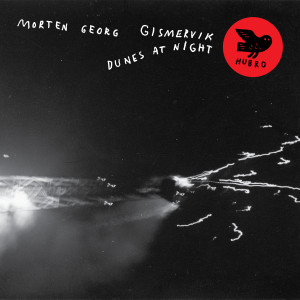 Here’s an album that’s hard to categorize. The young Norwegian guitarist and composer Morten Georg Gismervik’s Dunes at Night draws on contemporary jazz, classical, progressive, film scoring, and the wintry pallette of atmospheric Nordic jazz to tell a story of two characters with very different personalities. It turns out that Gismervik, who hails from the village of Avaldsnes on Karmøy, an island off of Norway’s west coast, is quite a story teller. As the jury that awarded him the Sildajazz Prize in 2022 put it, “In the compositions, you strongly feel that you are dealing with a storyteller – even if this is instrumental music.”
Here’s an album that’s hard to categorize. The young Norwegian guitarist and composer Morten Georg Gismervik’s Dunes at Night draws on contemporary jazz, classical, progressive, film scoring, and the wintry pallette of atmospheric Nordic jazz to tell a story of two characters with very different personalities. It turns out that Gismervik, who hails from the village of Avaldsnes on Karmøy, an island off of Norway’s west coast, is quite a story teller. As the jury that awarded him the Sildajazz Prize in 2022 put it, “In the compositions, you strongly feel that you are dealing with a storyteller – even if this is instrumental music.”
The music on Dunes at Night comes in two different styles, one portraying the outgoing and adventurous Kimri, the other the more introverted Winter. Kimri’s tracks for the most part involve propulsive grooves that often explode forth from quieter introductory sections, while Winter’s music highlights Gismervik’s sensitive guitar work along with delicate piano lines. The guitar and piano figure prominently on most of the album, with Gismervik playing all electric guitars and Harsha Jerome on piano.
“With Dunes at Night I was inspired to write a piece in album format, that could mirror a cinematic experience,” Gismervic says. “To be able to tell a story the way a movie does, while simultaneously maintaining the strength of the indescribable feelings and moods that are unique to music, was an exciting challenge to me. This resulted in a musical piece where the music gives the listener just a glimpse of the characters the story follows, what the action is, and how the characters in this piece change during the short hour the listener spends with the album.”
Gismervik, with two albums released in 2018 and 2020, already has a small stack of honors including the Sildajazz Prize in 2022 (which included a special concert slot at 2023’s festival), the PwC talent award, he Karmøy Cultural Scholarship in 2020, and the Drømmestipendet in 2022. Dunes at Night, on the prestigious Hubro label, is his third album. In some ways it’s the kind of easy jazz album that can be listened to in the background – until it isn’t.
“Canteen,” for example, features sections of languid, sunny electric slide guitar grooves interspersed with interludes of stuttery bass-drum-piano rhythmic exploration. The two introductory pieces, “Kimri’s Theme” parts 1 and 2 (there are four in all) begin with thequiet, almost elegiac piano meditation of Part 1, which builds to a crescendo and segues into Part 2, a zippy piano and drum and guitar workout with Sigurd Drogset Hemmingsen tapping a rapid tattoo on a tenor drum; then into a prog-funk section to the same fidgety beat combining ebowed guitar and synth keys for a very ’70s California jazz funk sound.
Kimri’s parts tend toward this pattern, with moody introductory sections followed by explosive kinetics, and Winter’s more quietly melodic, until they seem to meld in the final “I Was Greeted By Winter.”
The musicianship is impressive all around with Torger Forsberg on electric bass, Hemmingsen on drums and glockenspiel, and Jerome on piano. They’re joined on two pivotal pieces by guests Anders Skjerdal (trumpet, “Demfen”) and Håkon Huldt-Nystrøm (double bass, “Demfen”) and Øystein Folkedal and Ellen-Martine Gismervik playing piano and synth, and cello, respectively, on “I’m In.” Morten Georg Gismervik plays electric guitars throughout, and it’s notable that although he’s the composer, he’s always willing to step back and provide rhythm or color while his other players carry the lead.
Dunes at Night is an adventurous album, like just about everything from Hubro. Recommended for adventurous listeners.
(Hubro, 2023)
